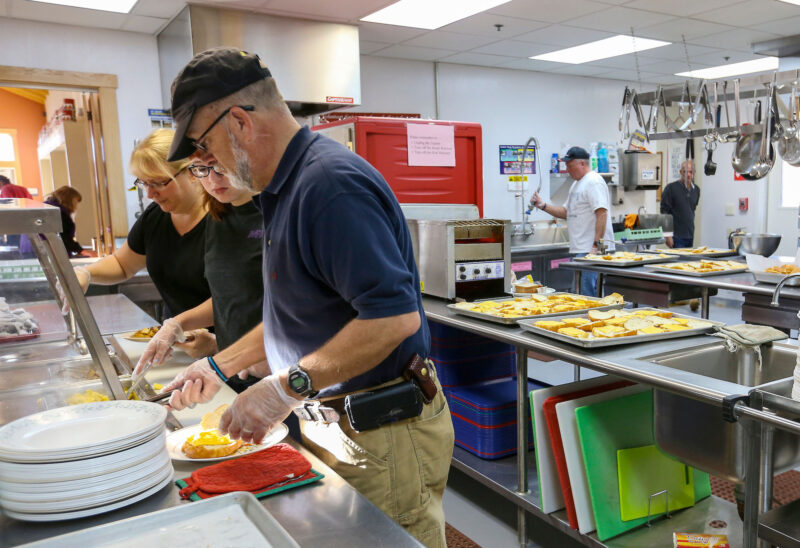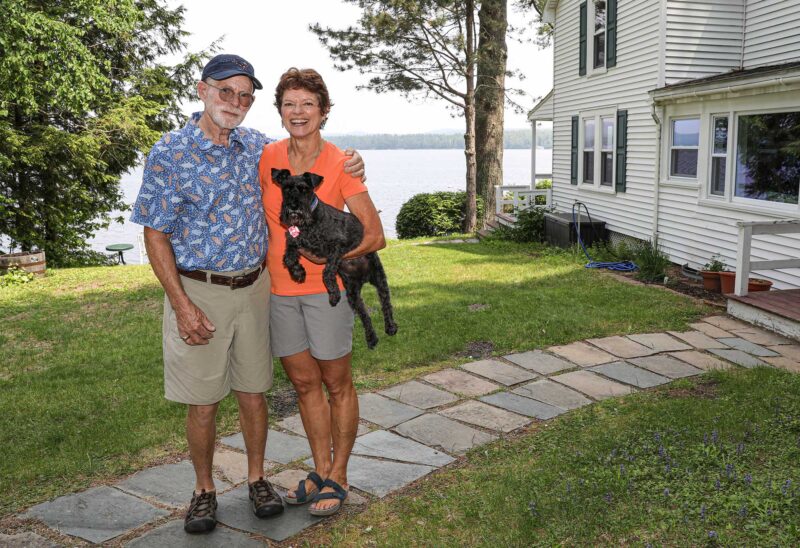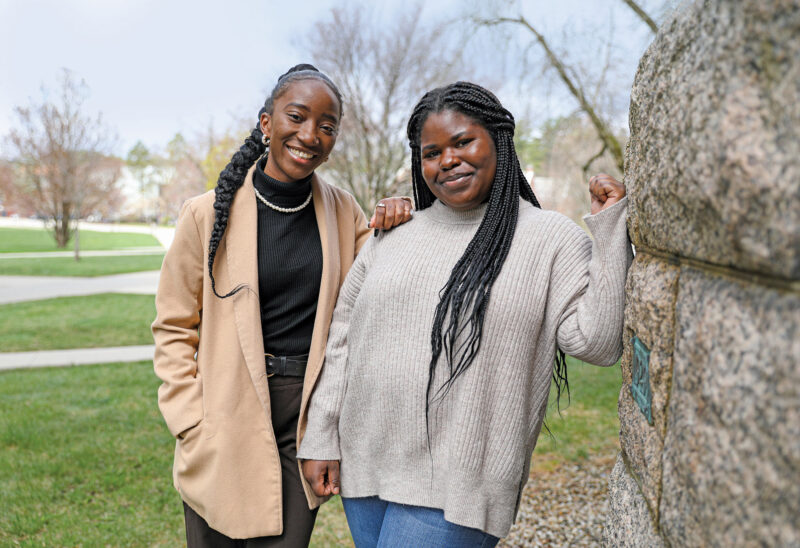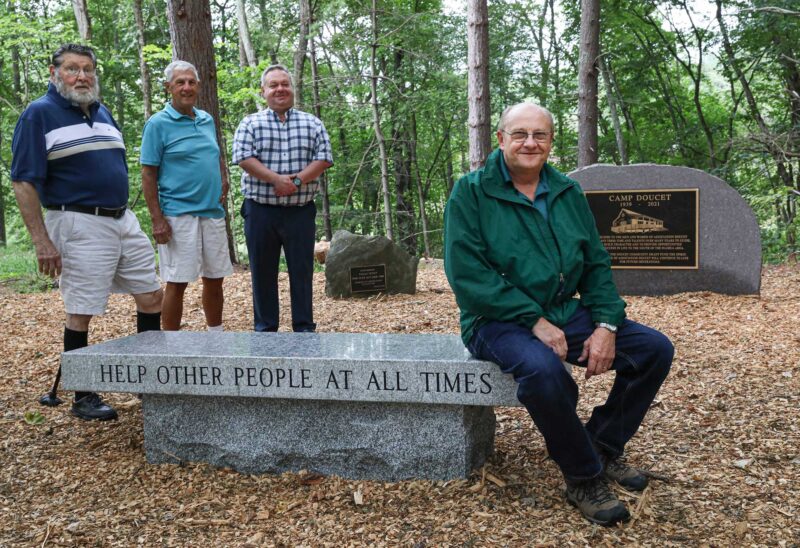This is a story about how a vast tract of forest will keep growing not only trees, but also education and opportunity for kids and help for struggling families.
The story starts with a landowner who credits education with transforming his life.
Jim Curvey grew up in Pennsylvania coal country. His father started work at 12 years old in a coal mine, and worked in the coal industry until he died in a car accident when Jim was 12.
Jim would eventually attend Villanova University, work for the federal government and go on to become president and chief operating officer of Fidelity Investments.
“Education,” he said, “changed my life. Had I not gone to Villanova, I would never be anywhere.” [Read more of Jim Curvey’s story here.]
He and his wife Shirley started a scholarship program at Villanova — exclusively for students from the hardscrabble region of Pennsylvania where they had grown up. They added a travel fellowship, giving those same kids the opportunity to learn about the world by traveling.
The Curveys now have a home in Alton, on Lake Winnipesaukee, and wanted to do something to help kids in the Lakes Region. In 2009, Jim and Shirley established the Curvey Scholars Program at Brewster Academy, modeled after the Villanova program.
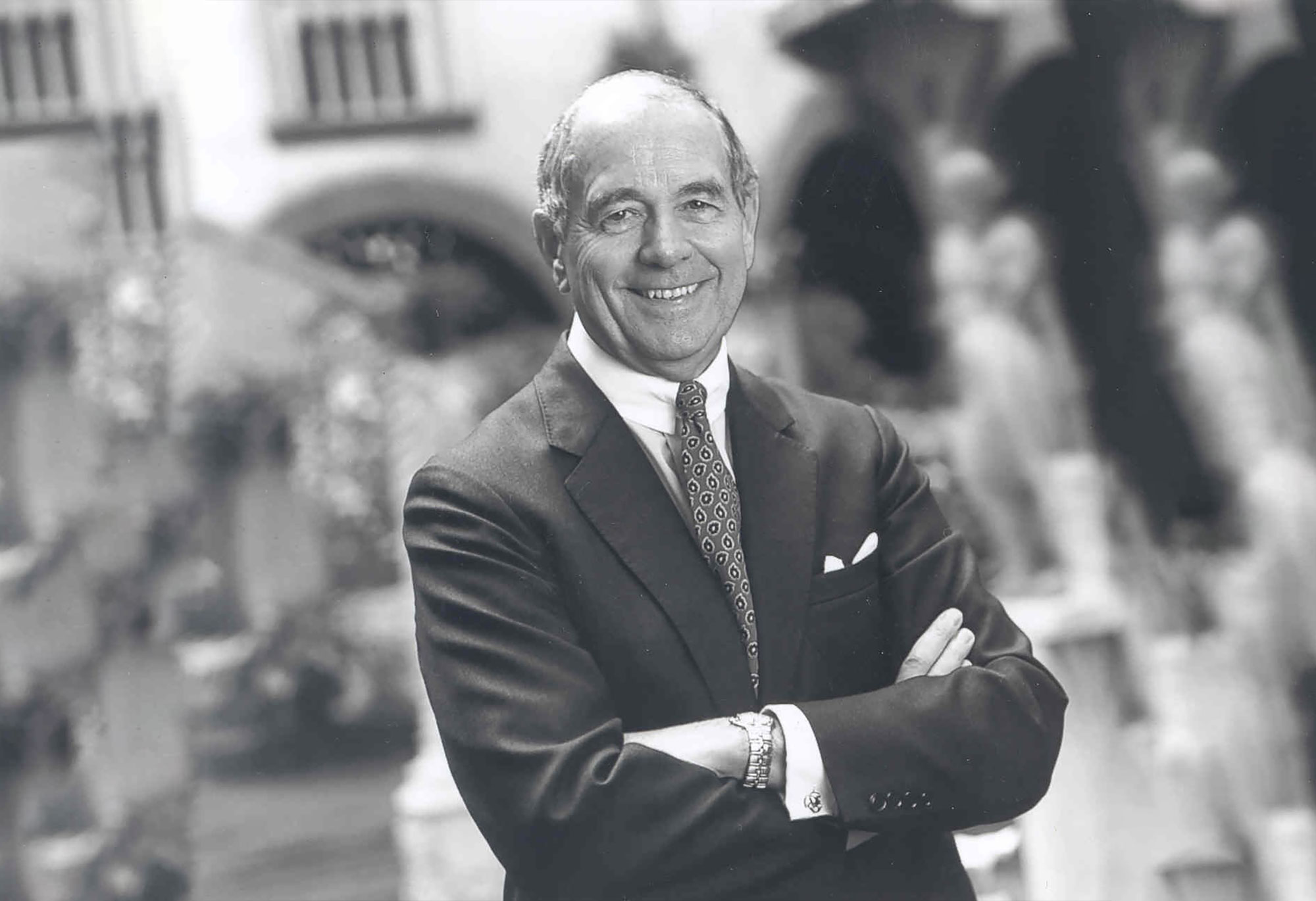
Jim Curvey
The Curveys had another unique asset: the Beaver Brook Forest, a 2,086-acre tract of land in Alton and New Durham.
The forest is an unfragmented block with prime timber and conservation value. Beaver Brook runs through it, and the land includes frontage on Shaw’s Pond and exceptional wildlife habitat. From the top of Caverly Mountain, within the forest’s bounds, is a hundred-mile vista that includes a view of Lake Winnipesaukee.
“We wanted to take the asset, donate it, have it cared for — and have money to give away,” Jim Curvey said. In all, a complicated order.
Roy Ballentine of Ballentine Partners, Curvey’s longtime financial advisor, suggested the Foundation — with its experience with gifts of real estate and deep knowledge of New Hampshire — as a philanthropic partner. (Ballentine has since joined the Foundation’s board of directors.)
“I thought that it would be a perfect fit,” Ballentine said. “What he needed was both a thought partner and expertise in turning a piece of valuable real estate into a charitable gift in the best way possible. That combination of needs pointed directly at the New Hampshire Charitable Foundation as being the best solution.” Foundation President and CEO Richard Ober spent 22 years working in land conservation before joining the Foundation in 2008.
In September of 2016, the Curveys gave the Beaver Brook land to the Foundation — which immediately started looking for the right buyer to manage, and potentially conserve, it.
The project was complex, Ober said, requiring careful analysis of potential uses and evaluation of timber, wildlife habitat, wetlands and recreational use. The tract spanned legal jurisdictions of two towns and two counties. It wrapped around an existing New Hampshire Department of Fish and Game preserve. It was undertaken when both timber values and federal conservation programs were in flux.
The Foundation worked with the Society for the Protection of New Hampshire Forests to find a buyer who would manage the land responsibly and consider conserving it. The Forest Society suggested Green Acre Woodlands, a family-owned timber company with a history of land conservation in New Hampshire. Nine months after the gift was made, the Foundation sold the land to Green Acre Woodlands, with a letter of intent to place a conservation easement on it within five years.
Per the agreement with the Curveys, half of the proceeds from the sale of the land went into the family’s donor-advised fund at Fidelity, a quarter went into a new family donor-advised fund at the Foundation and the balance will be for unrestricted purposes at the Foundation.
The Forest Society is now working on a plan to secure an easement to conserve the land in perpetuity.
“This is a large tract of working forest, with high conservation values, in a part of the state where such opportunities are few and far between,” said Brian Hotz, vice president for land conservation at the Forest Society. “We’re excited that the Foundation had a donor who would seek an owner of the property that would be likely to pursue a conservation easement, and give us the opportunity to pursue that easement. We don’t always get that, and it is a great opportunity.”
The result, Ballantine said, was “exactly what we hoped would happen. We knew it would not be easy, it wasn’t easy, but the basic strategy was well thought out, and the execution was excellent.”
Significant grants to benefit the Lakes Region have already been made from the proceeds of the sale.
A grant from the unrestricted funds was made to help Families in Transition open a short-term emergency housing facility in Wolfeboro. Many struggling families in Carroll County are in acute need of temporary help.
The new “Hope House” will house seven families at a time. Families in Transition expects to serve 43 parents and 84 children there each year, providing on-site staff to address specific needs for each family, such as transportation, case management, meals and employment. The Curveys attended an event at which they learned about the work of Families in Transition, and plan to make significant additional contributions to the Wolfeboro facility after it opens.
A new fellowship program has been established at Brewster Academy, allowing those Curvey Scholars from the Lakes Region the opportunity to broaden their educations through travel in the U.S. and Canada.
And a portion of the unrestricted funds that came to the Foundation have been dedicated directly to “New Hampshire Tomorrow,” the Foundation’s initiative to boost opportunity for New Hampshire kids. The initiative works across four areas: Early childhood development; family and youth supports; substance use disorders prevention treatment and recovery; and education and career pathways.
“These donors wanted to make a significant impact with this gift, and they wanted to see the land protected and well-managed,” Ober said. “We are thrilled to have been able to pull all the elements together so that all of those things can happen.”
The Charitable Foundation is committed to helping families achieve their philanthropic goals. For more information on how the Foundation can help, contact Melinda Mosier, vice president of donor engagement and philanthropy services, at 800-464-6641 ext. 266 or zryvaqn.zbfvre@aups.bet.

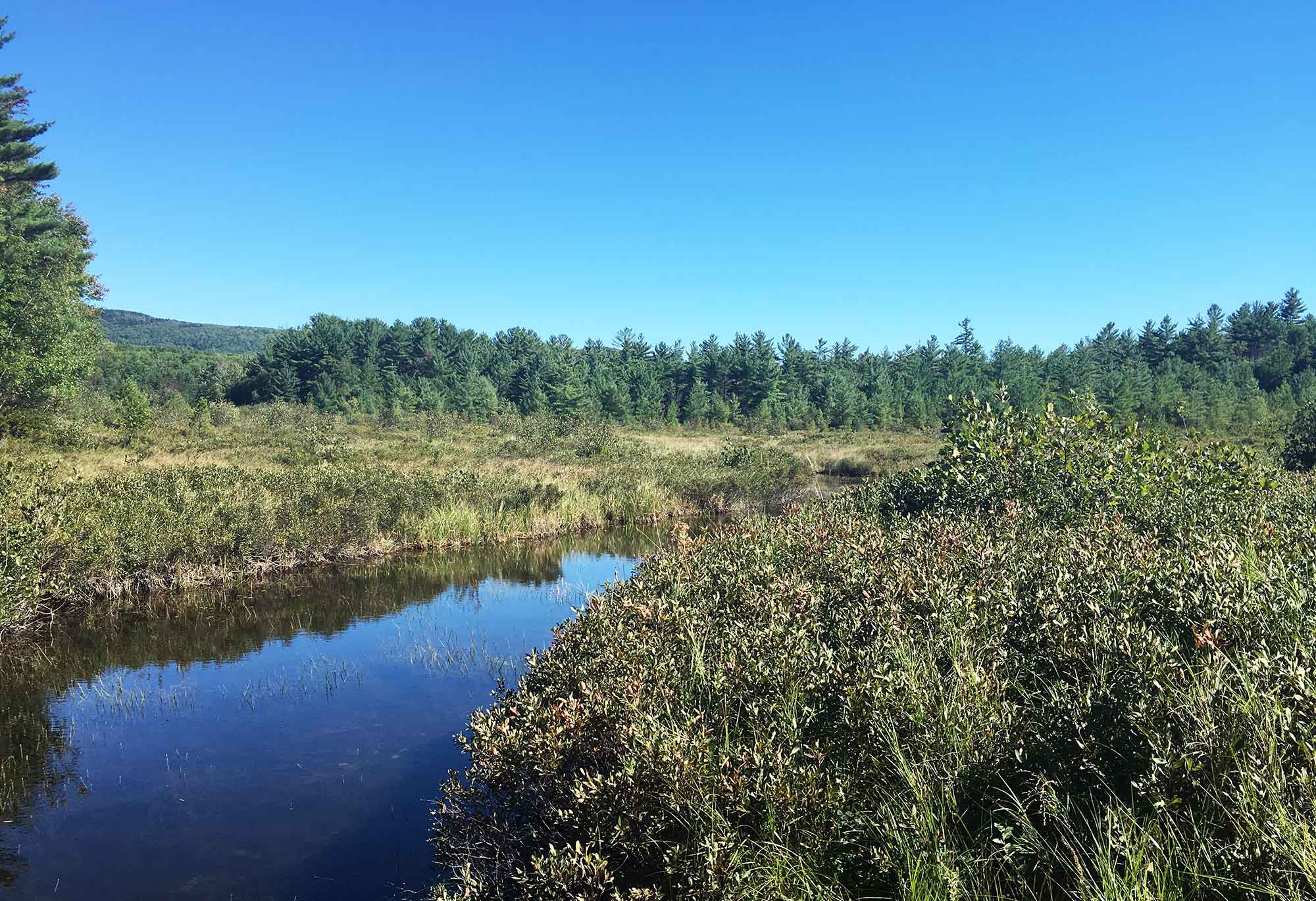






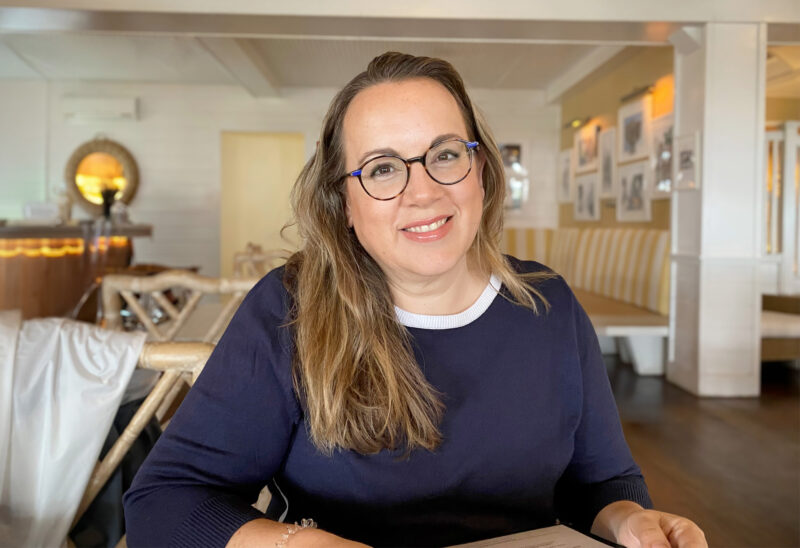
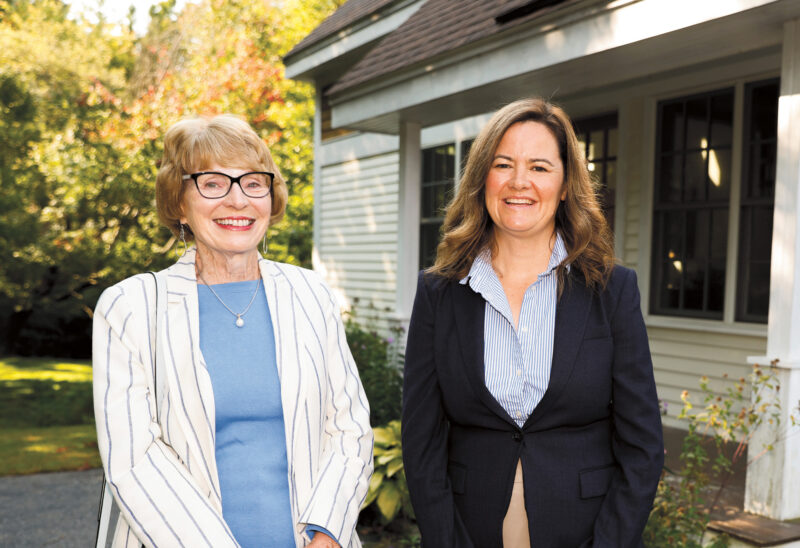
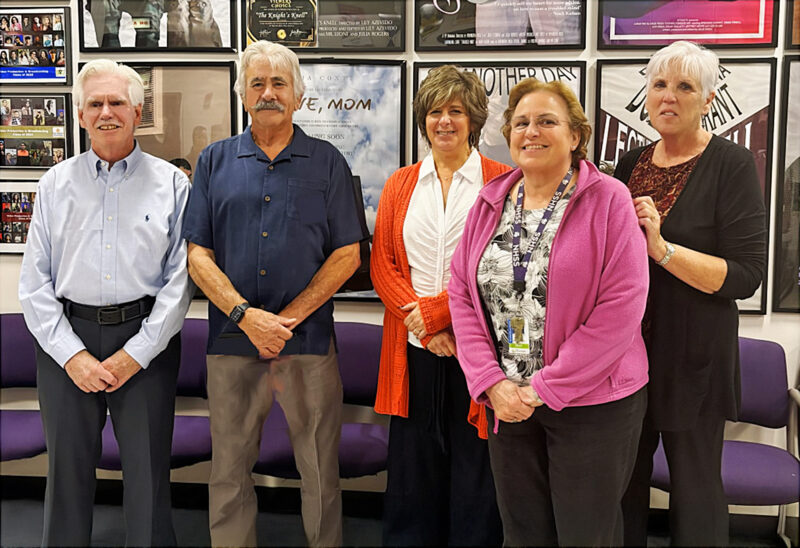
![Oluwakemi Olokunboyo of Dover received a McNabb scholarship to study nursing at Great Bay Community College [Photo by Cheryl Senter]](https://www.nhcf.org/wp-content/uploads/2024/05/Scholarship-Hero-800x548.jpg)
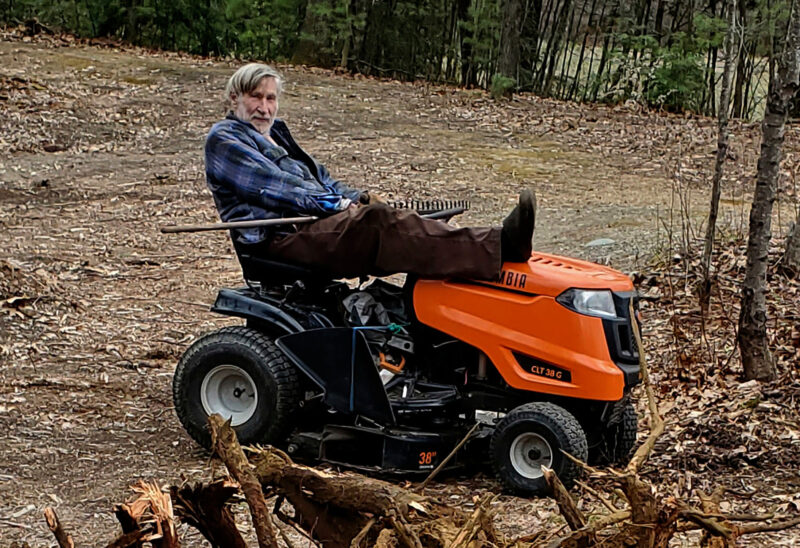
![Charitable Foundation President Dick Ober [Photo by Cheryl Senter]](https://www.nhcf.org/wp-content/uploads/2023/12/dick-ober-purpose-fall-winter-2023-800x548.jpg)
